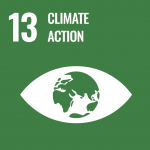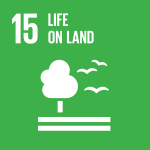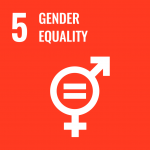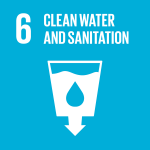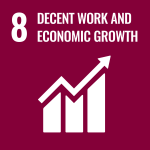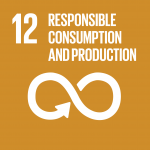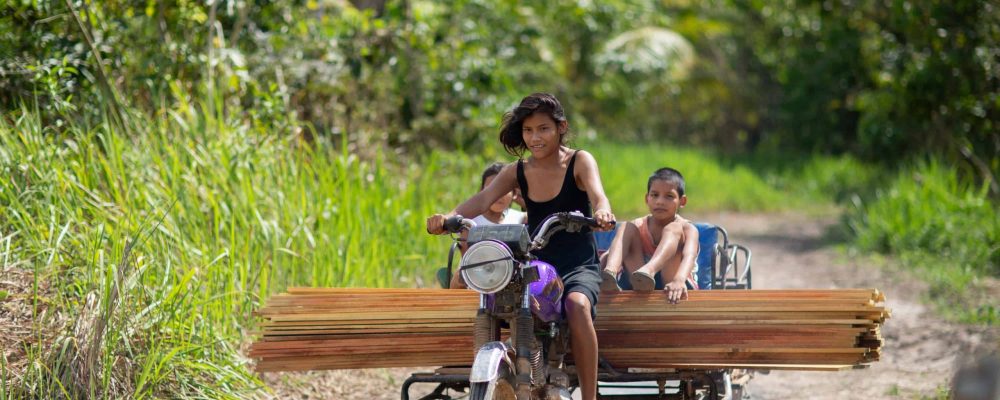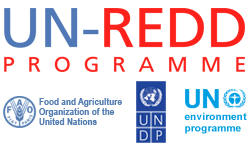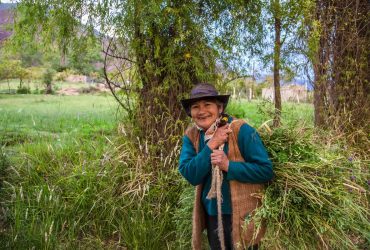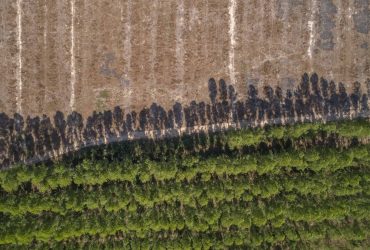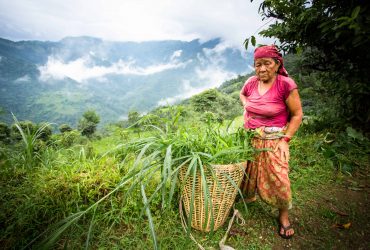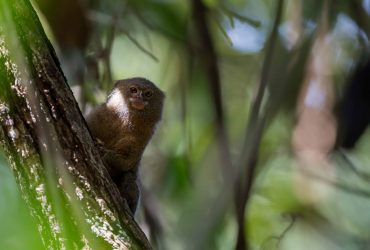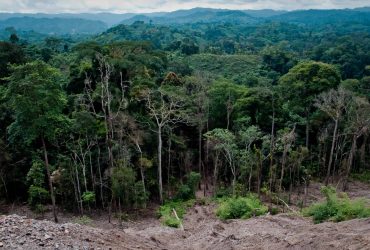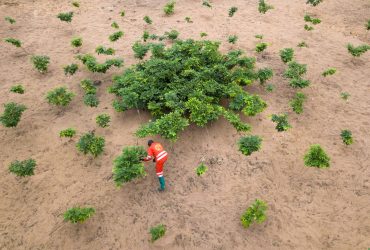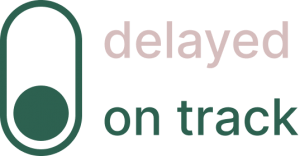


Forest Solutions Realized: Technical support has been provided to define a nesting approach for REDD+, including in the development of deforestation risk maps, with additional social and environmental criteria, a key input for preparing an emissions reductions (ER) allocation tool. Support has been provided during the Technical Assessment of the FREL and during the revision of the Technical Annex Report draft review process by MINAM. Support was also provided to carry out ER exercises, based on the updated FREL and considering different scenarios (including for nesting), to inform decisions on the reference and crediting periods to be defined under ART-TREES. There has been ongoing participation and support for the Intercultural Dialogues, which MINAM has facilitated with three major Amazonian Indigenous peoples’ organizations in Peru to discuss a range of topics related to REDD+.
In addition, there has been support on approaches to pilot and update the Safeguards Information Module (MIS) and Citizen Attention Mechanism (MAC).
Forest Solutions Rewarded: With support from UNEP and FAO, MINAM developed and submitted a TREES concept note in February, 2022, building on an assessment of the potential ERs generated for the period 2017-2021, as well as an analysis of conformance with safeguards requirements. A detailed workplan has been prepared to develop the ART-TREES registration document and monitoring report, including carbon, legal and safeguards elements. Technical support included a series of consultations with the ART Secretariat and the preparation of terms of reference to hire a team during 2023 to conduct ER estimations. There has been ongoing analysis of conformance with ART-TREES safeguards indicators, to feed into the registration document.
Initial approaches on strategies to access private sector finance, leveraged with public resources, in actions associated with the fulfillment of the new NDC have been discussed with MINAM.
Forest Solutions Enhanced: A roadmap to access climate finance from voluntary carbon markets (VCM), in alignment with the NDC and recent national legislation, has been prepared and discussed with MINAM. The roadmap aims to integrate different policy initiatives with private sector financing (VCMs).
MINAM has not had enough resources to hire technical staff needed to advance in forest and carbon monitoring in a way that allows them to meet bilateral and international reporting commitments, including in relation to the ART-TREES registration document and the first monitoring report. Extra resources have been mobilized to support Peru in advancing with technical and participatory aspects needed to advance these ongoing commitments, and to potentially access additional financing.
Despite additional resources being available to support progress in 2022, coordination with MINAM has been limited, in part due to the context of the evolving political situation. Progress in recruitment was only feasible by the end of the year, and the team will start working during the first quarter of 2023. Additional resources have been mobilized to support continued Intercultural Dialogues and participatory processes particularly at the regional level. Implementation will take place over 2023.
Peru is currently experiencing a complex political and security situation. The operations of MINAM continue, with a post-pandemic return to the office. Due to changing government priorities and a lack of technical staff at MINAM, there have been delays in defining how to proceed with the activities related to finance and the private sector. Further discussions will take place to define this work area in 2023. Under the work on voluntary carbon markets, there is the potential to hire a national expert to support MINAM in the design, implementation and monitoring of the VCM roadmap. With approval from MINAM, the process will be expedited in order to have a dedicated person to coordinate topics relating to VCM.
A number of consultations were held during 2022 related to the National Registry for Mitigation Measures (RENAMI), which aims to avoid double counting and serves as a tool to keep track of all mitigation measures. In addition, Intercultural Dialogues have been held with Amazonian Indigenous Peoples organizations. Both of these have included gender approaches. The Intercultural Dialogues have included women speakers and participants. MINAM produced two infographics explaining RENAMI that were widely distributed and included a gender perspective highlighting the roles of women and men.
The pilot version of Peru’s Safeguards Information Module (MIS) also included an approach to rights, gender equality and interculturality. In addition, the assessment conducted against ART-TREES 2.0 safeguards requirements analyzed specific gender elements, including the rights established by the Peruvian state to equality and non-discrimination based on gender, and the full and effective participation of women in the design and implementation of REDD+ actions.
The concept of comprehensive climate change management in general includes participatory, transparent and inclusive planning for the design, execution, monitoring, evaluation, reporting and dissemination of policies, strategies, plans, programmes and projects. These aim to reduce the vulnerability of a country against the effects of climate change, while reducing emissions and increasing GHG removals. Considering intercultural, gender and intergenerational approaches, they were developed under a multi-sector, multi-stakeholder and multi-level consultation process.
The effective and culturally relevant participation of non-state actors in the comprehensive management of climate change is established in the Framework Law on Climate Change (LMCC) and its Regulations, which have included extensive consultation processes with Indigenous peoples. The participatory and decentralized consultation processes to elaborate the LMCC’s regulation included seven workshops and 2,212 participants, with the involvement of Indigenous peoples.
The Indigenous Peoples’ Platform for Climate Change (PPICC) and the Indigenous REDD+ Roundtables for Participation and Contribution in Different Processes were also created as spaces to manage proposals for adaptation and mitigation measures of Indigenous peoples, valuing their traditional and ancestral knowledge, practices and experience. These spaces also aim to strengthen and build capacity of Indigenous representatives in REDD+, and in taking actions that contribute to the reduction of emissions from deforestation.
There was also broad participation from various stakeholders during the socialization of the Registration of Mitigation Actions (RENAMI). Multiple sessions were organized throughout the country with a particular emphasis on the Amazon area. In addition, special infographics were designed to reach a broader audience.
The Joint Declaration of Intent (JDI) is an international cooperation agreement on REDD+, updated in May, 2021, with endorsement from the governments of Germany, Norway, UK and the USA. This agreement includes performance finance for REDD+, under ART certification, which requires compliance with TREES. Peru is committed to updating Phase 2 of its JDI by establishing clear annual GHG emissions from deforestation and forest degradation reduction targets to inform resource allocation. Such targets should be the result of a participatory process between national sectors, Amazonian regional governments and Indigenous organizations, with a gender approach.
Additionally, the JDI addendum confirms Peru is committed to reducing its GHG emissions for compliance with the NDCs by accessing payment by results, in line with the TREES standard and considering national circumstances.
Peru is also committed to establishing an appropriate financial mechanism for REDD+ Results-based Payments. During COP27 Peru and Norway signed an agreement in which Norway committed to disburse $10 million through PROFONANPE (the Peruvian Trust Fund for National Parks and Protected Areas)[1], to continue supporting Peru with its efforts to halt deforestation and to implement the RENAMI.
Peru is also part of the Interfaith Rainforest Initiative (IRI), an international, multi-faith alliance that works to bring moral urgency and faith-based leadership to global efforts to end tropical deforestation. Activities being implemented since 2018 aim to protect rainforests and safeguard the Indigenous peoples that serve as their guardians.
The UN-REDD Programme is serving as a point of coordination for a number of commitments and partnerships that have been developed in support of REDD+ implementation in Peru, with regular planning and coordination calls held with the Norwegian Embassy in Peru, as well as with NICFI, NORAD, GIZ, USAID and CIFOR.
Peru has strong national commitments and policies in place on climate and forests, as evidenced through its NDC, which includes a number of specific measures related to forests. Peru’s continued progress on implementing its NDC, and REDD+ actions, contributes directly to SDGs 13 and 15 and indirectly to SDGs 5, 6, 8 and 12. Also, the RENAMI guidelines include some clauses related to alignment of mitigation action with SDG goals.
